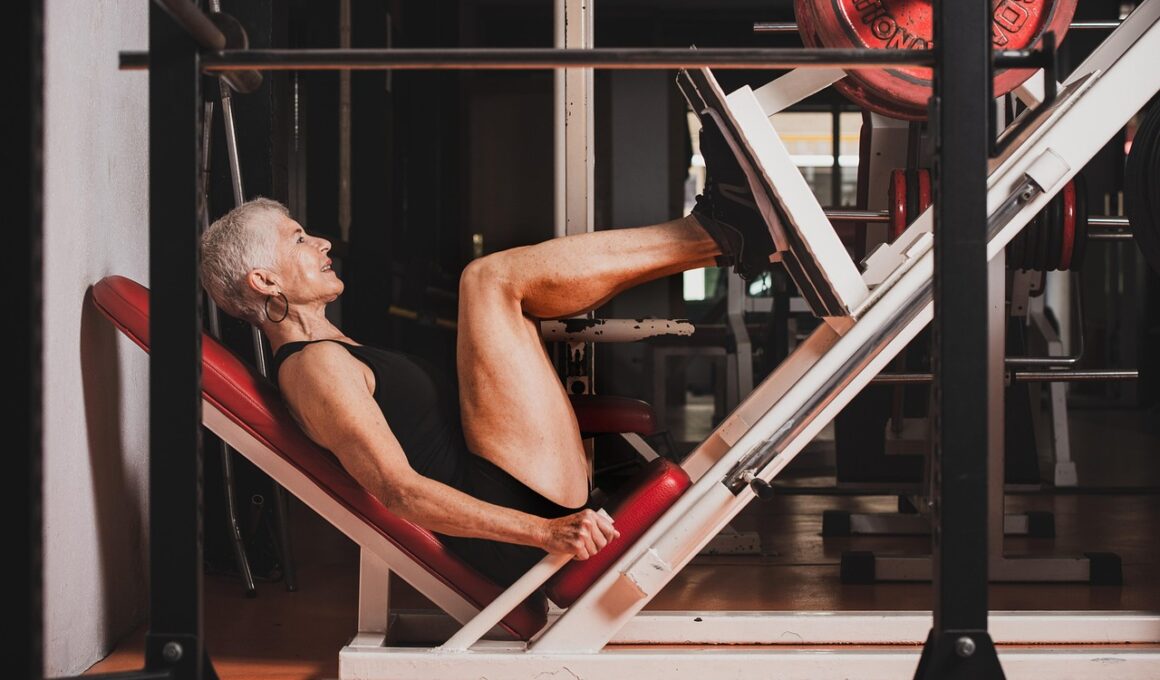Exercise Timing and Its Effects on Sleep in Senior Populations
For seniors, the relationship between exercise timing and sleep quality is essential. Regular physical activity has been known to improve sleep patterns, but the timing of such exercise plays a crucial role. Engaging in moderate aerobic exercises can enhance sleep duration and quality, an important factor for seniors. Some may wonder when the best time for exercise is for those in their later years. Research suggests that exercising during the morning or early afternoon is most beneficial, as it can align with natural circadian rhythms. Those who practice morning workouts often report feeling more energized throughout the day and seem to experience deeper sleep at night. Combining resistance training and aerobic exercises can also optimize sleep, ensuring that seniors enjoy restful nights. Importantly, seniors should consider their individual health challenges, such as arthritis or osteoporosis, before determining exercise times. Consulting with healthcare providers can aid in establishing a suitable exercise regiment without exacerbating health issues. Ultimately, creating a routine that includes timely exercise not only promotes physical health but can significantly enhance sleep quality for seniors.
The Importance of Sleep Quality
Quality sleep is vital for seniors, as it impacts mental and physical health. Sleep disturbances become increasingly common with age, leading to various health complications. A reduction in sleep quality can hinder cognitive function, affect memory, and lead to chronic health issues. Thus, understanding sleep and its determinants is crucial for seniors at risk of sleep-related disorders. Poor sleep can exacerbate problems like depression and can reduce the overall quality of life. By including regular exercise in their daily routines, seniors can naturally enhance their sleep quality. The benefits of better sleep among older adults include improved concentration, reduced anxiety, better mood stability, and enhanced overall well-being. Additionally, maintaining good sleep hygiene, which encompasses various habits that promote consistent sleep, is essential. This includes creating a comfortable sleep environment and avoiding stimulating activities before bedtime. Seniors should prioritize a regular sleep schedule and healthy lifestyle choices, including a balanced diet, to facilitate good sleep quality. By prioritizing these factors, seniors can help combat the sleep challenges often experienced during later years, leading to healthier, more fulfilling lives.
Types of Exercises Beneficial for Seniors
A variety of exercises can contribute positively to sleep quality in seniors. Aerobic exercises, such as walking, swimming, or cycling, are particularly effective for maintaining cardiovascular health and enhancing endurance. These activities can help manage stress, contributing to better sleep at night. Strength training exercises also play a significant role, as they enhance muscle mass and bone density, which are often problematic for older adults. Yoga and stretching exercises promote flexibility and relaxation, reducing anxiety levels while assisting in physical rehabilitation. Additionally, engaging in tai chi can improve balance and promote mindfulness, creating a calming effect that aids sleep. It’s essential to find an enjoyable exercise regimen to encourage consistency. Participating in group classes or activities can facilitate social interaction, further enhancing mental well-being and encouraging adherence to regular exercise. Furthermore, approaching exercise as a fun activity rather than a chore can encourage more seniors to maintain dedication to their fitness routines. Emphasizing variety ensures that seniors benefit from a well-rounded physical activity plan, enhancing both physical and mental health significantly.
Hydration also impacts exercise and sleep quality in seniors. Drinking adequate water throughout the day is vital, especially if engaging in physical activities. However, seniors should monitor fluid intake close to bedtime to avoid frequent nighttime trips to the bathroom. Additionally, nutrition plays an essential role in overall health, affecting sleep quality. Foods containing magnesium and omega-3 fatty acids, such as leafy greens or fatty fish, contribute positively to sleep health and should be included in seniors’ diets. A nutritional balancing act should be maintained, focusing on whole foods and reducing processed items that can disrupt sleep. Cognitive factors, like maintaining routines around physical activity and nutrition, can enhance sleep quality as well. Social aspects come into play, as engaging in community exercise programs can promote camaraderie that boosts seniors’ motivation to stay active. It’s crucial for older adults to remain mentally stimulated and socially connected to combat feelings of loneliness. All these elements combined form a holistic approach to improving sleep and physical health in the senior population, leading to enriched lives.
Professional Guidance and Tailored Programs
Seniors should seek professional guidance connecting exercise routines to sleep quality effectively. This approach ensures safety and adapts activities based on individual needs and limitations. Having tailored physical programs can help seniors avoid injuries that may arise from inadequate exercise planning. Moreover, engaging with a physical therapist or trainer can lead to sustainable, effective regimens tailored to each individual’s circumstances. Regular consultations can also help seniors stay motivated and adapt their routines as necessary. Some may require more emphasis on balance and flexibility, while others may focus on building cardiovascular strength. Furthermore, healthcare providers may recommend consultations with sleep specialists if significant sleep disturbances persist. It’s crucial for seniors to recognize that improving sleep may take time and persistent efforts in physical activity. Maintaining a positive mindset while gradually embedding new routines will contribute to overall wellness. Both physical health and sleep quality are interconnected, making a systematic approach necessary for lasting change. Emphasizing this connection underscores the critical role exercise plays in enhancing life quality for seniors.
Conclusion: The Interconnection of Fitness and Sleep
In conclusion, understanding the correlation between exercise timing and sleep quality holds immense significance for seniors. Emphasizing a balanced regimen that includes aerobic, strength, and flexibility exercises promotes both physical and mental health. Adequate sleep influences mood, cognitive functions, and overall health in older adults, demonstrating its crucial role as part of a wellness strategy. Through committed, regular exercise routines tailored to individual needs, seniors can experience improved sleep patterns. Addressing factors such as hydration, nutrition, and social engagement further enhances these benefits, creating a comprehensive wellness plan. As seniors explore different physical activities, they should focus on enjoyment and sustainability, making fitness a rewarding part of their daily lives. A mindset shift towards valuing both movement and rest can lead to significant improvements in sleep and health quality. Consulting professionals can provide essential guidance and the support necessary to develop a personalized fitness strategy addressing both exercise and sleep. Ultimately, enhancing life quality in senior populations hinges on recognizing these interconnected areas for optimal living.
As seniors embrace change and prioritize their health, understanding the role of exercise will navigate enhanced sleep quality. By recognizing how regular movement impacts nightly rest, seniors can take proactive steps towards better health outcomes. Empowering older adults with knowledge about effective exercise timings fosters responsible decision-making regarding their fitness. Additionally, acknowledging the need for social and professional support will ease the transition to a more active lifestyle. Whether through community classes or at-home workouts tailored for seniors, the focus should always remain on encouragement and safety. Creating environments that promote physical activity while prioritizing sleep health will positively affect seniors’ well-being. Over time, these changes can lead to remarkable improvements in seniors’ overall health and happiness, allowing them to lead fulfilling lives. As research continues to evolve regarding fitness and sleep in older adults, embracing these findings will benefit broader populations. Ultimately, the connection between exercise and sleep is undeniable, showing just how vital physical activity is at any age, particularly in the later stages of life.





